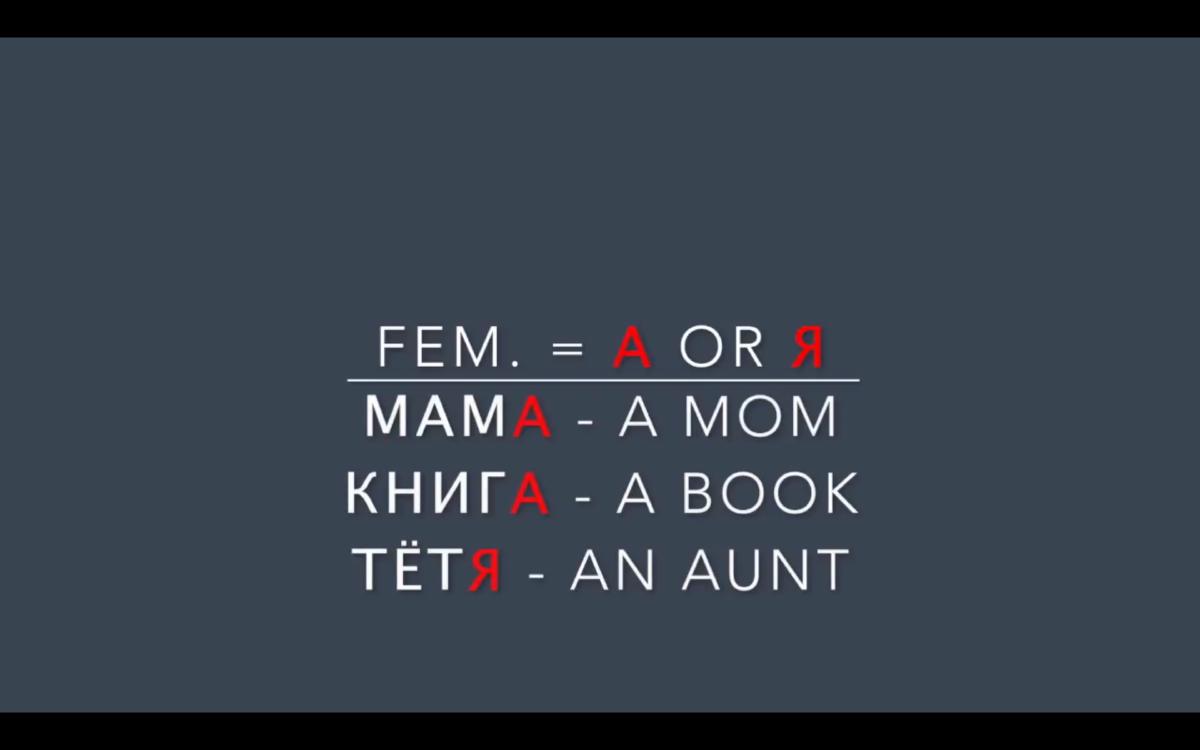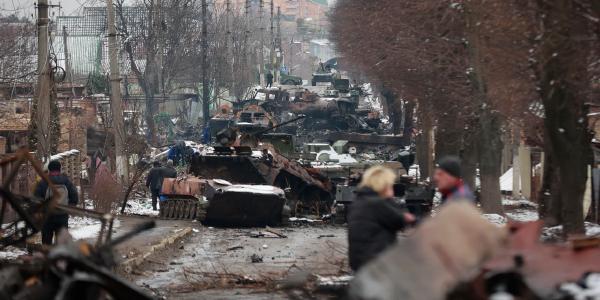Masculine, Feminine, Neuter
Every noun in Russian is masculine, feminine, or neuter. You always need to know which category it falls into, and usually, that’s not difficult. Words ending in a consonant are masculine, words ending in а or я are feminine, and words ending in о or е are neuter.
Exceptions
For every rule, there’s an exception. имя (name) and время (time) are neuter, кофе (coffee) is masculine, and there are more examples like these. And if a word ends in ь (мягкий знак, the soft sign), it can be either masculine or feminine. This occurs often and follows its own set of rules.
Additionally, words like папа (dad) or дядя (uncle) may end in а and я, but a dad and an uncle are still мужчина (man). The same rule applies to such words: despite the feminine ending, they are treated as masculine.
More about this in:
- Nouns with Tricky Genders (College Russian, 2018, 4 m)
- Russian Noun Gender: Exceptions (Russian with Russian, 2017, 5 m)
- Russian Language Gender Exceptions + Plural Forms (Cafe Russian, 2016, 3 m)
- Gender of Nouns – Exceptions (I Learn Russian, 2013, 7 m)
Spelling
It’s difficult to determine whether a word ends in о or а just by sound, or if it ends with a ь or not. You need to know how it’s spelled to determine which rules apply. It will always be one of the three: мужской род (masculine), женский род (feminine), or средний род (neuter). род means “kind” or “type.”
Russian Lesson – Gender of Nouns
(RussianUp, 2019, 14 m)
Grammatical Gender of Nouns
(Amazing Russian, 2018, 16 m)
Genders of Adjectives and Nouns in Russian
(Anna Cher, 2018, 9 m)
Grammatical Gender
(Russian grammar, 2013, 3 m)
More
- Everything About Russian Gender (Be Fluent in Russian, 2019, 6 m)
- Gender of Russian Nouns (Alfia, 2019, 16 m)
- Мужской, женский и средний роды существительных (О русском по-русски, 2019, 9 m)
- Common Objects & Gender of Nouns in Russian (Maria Petrova, 2019, 13 m)
- Gender of Nouns (Russian with Nastya, 2019, 6 m)
- How to Define a Gender of Nouns? (Daria Mikhay, 2018, 5 m)
- Gender of Russian Nouns (Ru-Land Club, 2018, 10 m)
- Russian Nouns Gender (Real Russian Club, 2018, 54 m)
- Introduction to Gender of Nouns (College Russian, 2018, 9 m)
- Мужской, женский и средний род (русский с носителем, 2017, 6 m)
- Gender of Nouns and Personal Pronouns (Learn Russian, 2017, 12 m)
- Genders of Russian Nouns (Learn Russian Now, 2016, 4 m)
- Genders in the Russian Language (Denis Fedorov, 2014, 7 m)
- Russian Grammar Lesson 1: Gender of Nouns (Fun Russian, 2012, 2 m)
More






